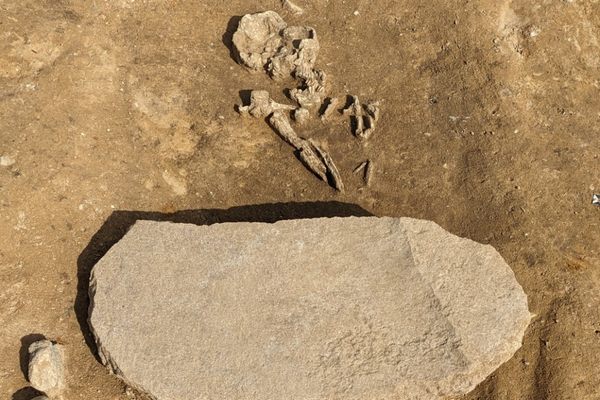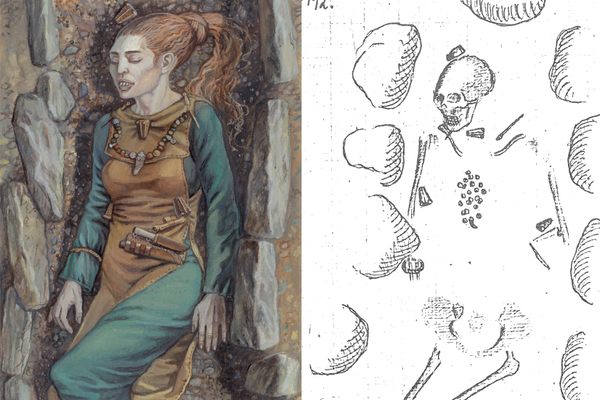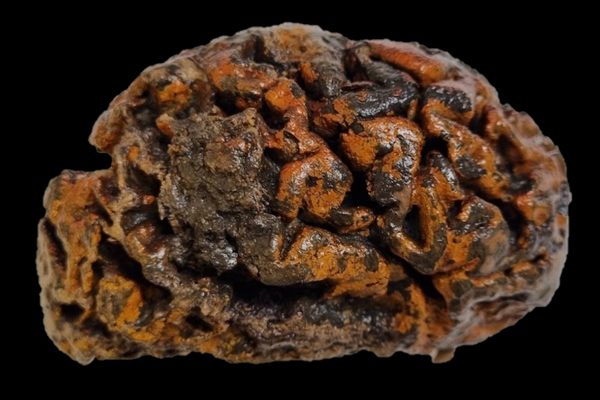The Turtle-Centric Burial Practices of Ancient Turkey
Welcome to the best psychopomp.

A Euphrates soft-shelled turtle, possibly taking a break from ferrying souls. (Photo: Dûrzan cîrano/CC BY-SA-3.0)
Across history, various mythologies have incorporated the idea of a being or spirit that guides the deceased to the afterlife—names like Charon, Anubis, the Valkyries, or the Grim Reaper might immediately jump to mind.
But have you ever considered being carried to heaven by a turtle?
Recently, a team of French and Turkish researchers discovered an unusual burial at Kavuşan Höyük in southeastern Turkey, an Assyrian site dating between 700 and 300 BC. According to a Discovery News report, the burial site contained the skeletons of a woman, aged 45 to 55 years old, a child around 6 or 7 years, and numerous turtle, tortoise, and terrapin remains.
Specifically, remains of 17 Euphrates soft-shelled turtles, one spur-thighed tortoise, and three Middle Eastern terrapins were ritualistically incorporated into the burial. In a paper published in Antiquity, the researchers explain that the different chelonians appear to have played different distinct roles in the funerary rites; the Euphrates soft-shelled turtles were “clearly butchered” and likely consumed as part of a funeral ceremony, while the other chelonians were only represented by their empty shells, indicating the remains were included as grave goods. Interestingly, the researchers connect the inclusion of the turtles’ shoulder bones to far more recent cultural practices in the area, noting, “As recently as 40 years ago in south-eastern Turkey, these skeletal elements were regularly hung around the necks or shoulders of infants to protect them against the ‘evil eye’.”
Lead researcher Rémi Berthon explained the significance of the grave to Discovery News, stating, “Although the Middle Eastern terrapin is very common in eastern Turkey, this is the first evidence of its use as a grave good. Finding Euphrates soft-shelled turtles in a burial is unprecedented as well.” Despite the novelty of the discovery, the researchers support their claims of turtle spirit guides through evidence in ancient texts, noting their use in Babylonian funeral and religious ceremonies among other depictions. And because ancient texts also make a point of describing the Euphrates soft-shelled turtle’s “aggressive, biting nature,” the researchers conclude that the woman in the grave likely held a high social status, justifying her community taking the time to catch 17 extremely surly turtles.
In concluding their findings, Barthon’s team notes that turtles are still believed to ward off death in southeastern Turkey, 2,600 years after this unique burial occurred. One might consider it another indication that it’s turtles all the way down.










Follow us on Twitter to get the latest on the world's hidden wonders.
Like us on Facebook to get the latest on the world's hidden wonders.
Follow us on Twitter Like us on Facebook